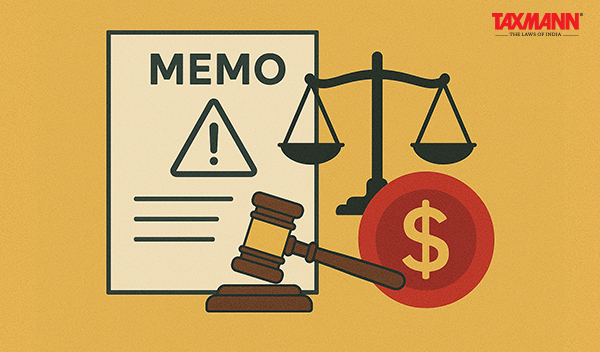Deficiency Memo | HC Rules Compliance Not a New Refund Claim
- Blog|News|GST & Customs|
- 2 Min Read
- By Taxmann
- |
- Last Updated on 15 May, 2025

Case Details: Savex Technologies (P.) Ltd. vs. Union of India - [2025] 174 taxmann.com 178 (Gujarat)
Judiciary and Counsel Details
- Bhargav D. Karia & D.N. Ray, JJ.
-
Krutarth K. Desai, Abhay Y. Desai, for the Petitioner.
-
Neel P. Lakhani, Pradip D. Bhate, for the Respondent.
Facts of the Case
The petitioner, a registered assessee under the CGST Act filed a refund application under Section 54(1) within the prescribed time limit. Upon scrutiny, the jurisdictional officer issued deficiency memos citing certain procedural gaps. The petitioner duly complied with these memos on multiple occasions. However, the refund application was subsequently rejected on the ground of limitation, with the authorities treating the petitioner’s compliance with the deficiency memos as a fresh refund application.
Aggrieved by this, the petitioner filed an appeal before the Appellate Authority, which also dismissed the appeal on identical grounds. In support of their contention that such compliance cannot be equated to a new application, the petitioner placed reliance on the judgment of the High Court in M/s. La-Gajjar Machineries Private Limited v. Union of India & Others The matter was brought before Gujarat High Court.
High Court Held
The Hon’ble Gujarat High Court held that compliance with a deficiency memo issued under Section 54 cannot be treated as a fresh refund application for the purpose of determining limitation. The Court clarified that once an application is filed within the statutory time limit, the subsequent rectification of deficiencies is a continuation of the original process and does not reset the limitation period. Observing that the petitioner had complied with the procedural requirements in good faith, the Court directed that notice be issued to the respondents and listed the matter for further consideration.
Disclaimer: The content/information published on the website is only for general information of the user and shall not be construed as legal advice. While the Taxmann has exercised reasonable efforts to ensure the veracity of information/content published, Taxmann shall be under no liability in any manner whatsoever for incorrect information, if any.

Taxmann Publications has a dedicated in-house Research & Editorial Team. This team consists of a team of Chartered Accountants, Company Secretaries, and Lawyers. This team works under the guidance and supervision of editor-in-chief Mr Rakesh Bhargava.
The Research and Editorial Team is responsible for developing reliable and accurate content for the readers. The team follows the six-sigma approach to achieve the benchmark of zero error in its publications and research platforms. The team ensures that the following publication guidelines are thoroughly followed while developing the content:
- The statutory material is obtained only from the authorized and reliable sources
- All the latest developments in the judicial and legislative fields are covered
- Prepare the analytical write-ups on current, controversial, and important issues to help the readers to understand the concept and its implications
- Every content published by Taxmann is complete, accurate and lucid
- All evidence-based statements are supported with proper reference to Section, Circular No., Notification No. or citations
- The golden rules of grammar, style and consistency are thoroughly followed
- Font and size that’s easy to read and remain consistent across all imprint and digital publications are applied



 CA | CS | CMA
CA | CS | CMA
